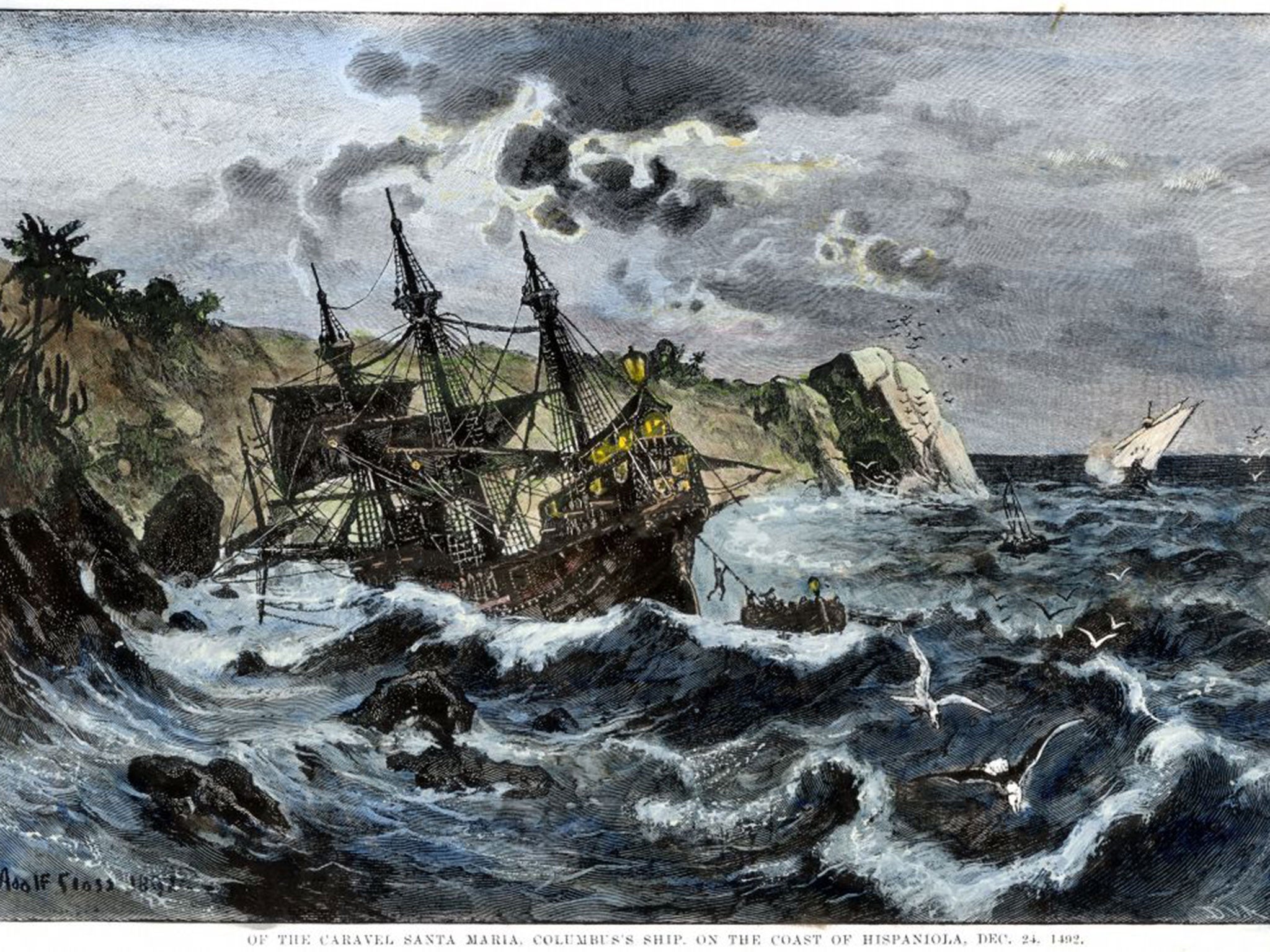Christopher Columbus: The life and legacy of the famous explorer
He might have believed it was Asia but his voyages to America changed the world

Your support helps us to tell the story
From reproductive rights to climate change to Big Tech, The Independent is on the ground when the story is developing. Whether it's investigating the financials of Elon Musk's pro-Trump PAC or producing our latest documentary, 'The A Word', which shines a light on the American women fighting for reproductive rights, we know how important it is to parse out the facts from the messaging.
At such a critical moment in US history, we need reporters on the ground. Your donation allows us to keep sending journalists to speak to both sides of the story.
The Independent is trusted by Americans across the entire political spectrum. And unlike many other quality news outlets, we choose not to lock Americans out of our reporting and analysis with paywalls. We believe quality journalism should be available to everyone, paid for by those who can afford it.
Your support makes all the difference.Christopher Columbus has long been hailed as the “discoverer” of the New World.
Although Vikings got to North America first, five centuries before, his explorations opened the way for the European exploration and colonisation of the continent.
Born in 1451 in Genoa, Italy, Columbus first went to sea as a teenager and went on to become a master navigator and admiral.
In his 30s, he started trying to get support for a transatlantic voyage but he was not successful getting royal backing until King Ferdinand and Queen Isabella of Spain granted their patronage in 1492.
The voyage was intended to forge a westward sea passage to the Orient, where the settlers aimed to start a colony where they could convert people to Christianity and exploit the production of spices and other natural resources.
In August 1492, Columbus departed from Spain with three ships, including the recently discovered Santa Maria.

Land was not spotted until 12 October. Columbus was adamant that he was in Asia but he had in fact landed in what is now The Bahamas.
He named the first island they found San Salvador before going on to Cuba and Hispaniola, where a settlement, La Navidad, was founded with permission from the indigenous people.
On their return to Spain, the crew were received as heroes and Columbus paraded indigenous people he had captured at court along with gold, the previously unknown tobacco plant, pineapples and turkeys.
The explorer set sail again in September 1493 with a much larger fleet of 17 ships.
They explored the Caribbean and revisited La Navidad, where a new settlement was founded because the men left behind had been killed.
Hundreds of indigenous people were enslaved and many died on the journey back to Spain.
The third voyage did not start until 1498, when Columbus took six ships to Trinidad, Venezuela and started the exploration of mainland South America.
Still convinced that the lands he visited were parts of Asia, despite mounting evidence to the contrary, he returned to dry land and was made the "Viceroy and Governor of the Indies".
But accusations of tyranny and incompetence had reached the Spanish court and in 1500, he and his brothers were arrested and jailed for alleged atrocities.
Eventually released, Columbus made his fourth and last exploration, looking for a westward passage to the Indian Ocean, from Spain in 1502.
They sailed to Central America, landing in Honduras, Nicaragua, Costa Rica and Panama before being beached in Jamaica, where the crew were stranded for a year.
Columbus returned to Spain for the last time in 1504 and died two years later at the age of about 54 in Valladolid.
Removed from his standing as a governor and denied profits made in the new lands, he was a disappointed man.
After his death, his sons Diego and Fernando continued lengthy legal disputes with the Castilian crown trying to get the profits they believed they were owed.
The anniversary of Columbus' 1492 landing in the Americas is still celebrated annually in Spain and throughout the Americas, except Canada.
The US marks Columbus Day in October, while in Spain it is called the Fiesta Nacional de España y Día de la Hispanidad and a number of countries in Latin America celebrate it as Día de la Raza.
Join our commenting forum
Join thought-provoking conversations, follow other Independent readers and see their replies
Comments